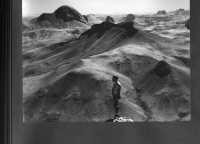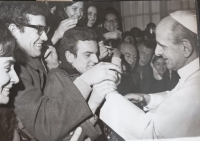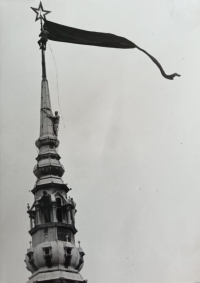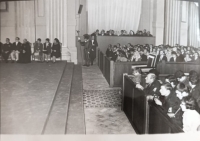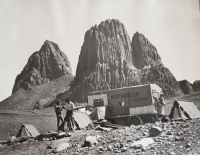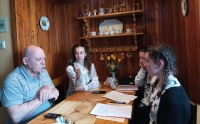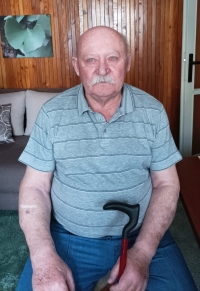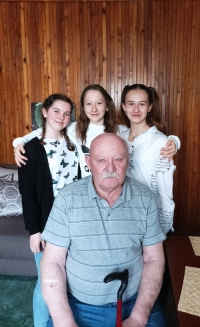They went up to the town hall with a black flag. Underneath them were occupiers with machine guns
Stáhnout obrázek
Jan Kyncl was born on 6 February 1943 in Prague to Josef Kyncl and Anna Kynclová, the middle child of their three sons. The family moved to Liberec right after the war for work. He often spent his holidays at his grandfather‘s house in Újezd u Berouna, where he witnessed his grandfather‘s death after he had a heart attack during collectivization. In 1952, his father refused to install a five-pointed star, the symbol of communist power, instead of a knight at the Liberec town hall, and for a while, he found himself in prison. In January 1968, he helped organise the first edition of the Jizera 50. In August 1968, he and his climbing group climbed the tower of the Liberec City Hall, where he raised a black flag in protest against the occupation of Czechoslovakia by Warsaw Pact troops. At that time he had already organized the Hoggar Expedition to Africa, which he still managed to undertake. He set off on his journey on 15 January 1969. The expedition returned on 1 April 1969. On the way, together with other climbers, he was received by Pope Paul VI after the burning of Jan Palach in the Vatican. During the period of normalisation, he had great difficulty finding employment. After the Velvet Revolution in 1989, he took down the five-pointed star from the Liberec Town Hall and in 1990 he placed a lion on its top. In 2022 he lived in Liberec. He died on February 27, 2025.
